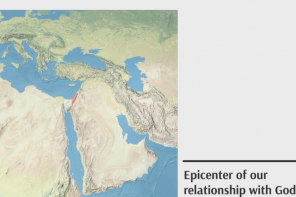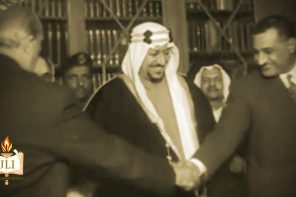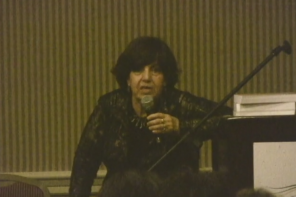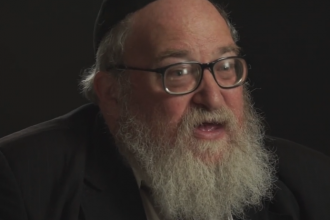From Soviet Russia to Israel
Natan (Anatoly) Sharansky was born in the Ukraine and graduated with a degree in mathematics from the Physical Technical Institute in Moscow. His early association with the human rights movement was an English interpreter for Andrei Sakharov, before emerging in his own right as a foremost dissident and spokesman for the Soviet Jewry movement. In 1973, Sharansky applied for an exit visa to Israel, but was refused on “security” grounds. He remained prominently involved in Jewish refusenik activities until his arrest in 1977. Convicted in 1978 of treason and spying on behalf of the United States, Sharansky was sentenced to thirteen years imprisonment. He spent 16 months in Moscow's Lefortovo prison, frequently in solitary confinement and in a special “torture cell,” before being transferred to a notorious prison camp in the Siberian gulag. Years later, following his release, Sharansky stressed his need throughout his imprisonment to remain emotionally independent. He attributed his survival of the lengthy incarceration and the brutal conditions to his resistance to any sort of emotional surrender. Hence Sharansky's expression of the paradox that while an ordinary Russian, he was in fact a slave to the system; but that once he discovered his Jewish roots and was restricted for his allegiance to them, he was in reality a free man. Sharansky's memoirs of his years as a prisoner of Zion are described in his book Fear No Evil. During the years of his imprisonment, Sharansky became a symbol for human rights in general and Soviet Jewry in particular. A campaign for his release was waged tirelessly by his wife, Avital, who emigrated to Israel immediately following their wedding with the hope that her husband would follow shortly. Intense diplomatic efforts and public outcries for his release were unsuccessful until 1986, when Sharansky was released as part of an East-West prisoner exchange. Freed on the border of a still-divided Germany, he was met by the Israeli ambassador who presented him immediately with his new Israeli passport under the Hebrew name of Natan Sharansky. He arrived in Israel on February 11, 1986, and was greeted by leading government officials, including then Prime Minister Shimon Peres, and was given a hero's welcome. In 1988, he was elected President of the newly created Zionist Forum, the umbrella organization of former Soviet activists. He also served as an associate editor of the Jerusalem Report. Increasingly disappointed with Israel's absorption of the large influx of Soviet Jews, he wrote frequently on the subject, and in 1995 created a new political party, Yisrael b’Aliyah, dedicated to helping immigrants' professional, economic and social acculturation. In the elections the following year, the party won seven Knesset seats, and Sharansky was named Minister of Industry and Trade. Sharansky served as Minister of Industry and Trade from June 1996-1999. He served as Minister of the Interior from July 1999 until his resignation in July 2000 and as Minister of Housing and Construction and Deputy Prime Minister from March 2001 until February 2003. In February 2003, Natan Sharansky was appointed Minister without Portfolio, responsible for Jerusalem, social and Diaspora affairs. Sharansky resigned from the government on May 2, 2005, because of his opposition to Ariel Sharon’s disengagement plan. In November 2006 Natan Sharansky resigned from the Knesset and assumed the position of Chairman of the newly established Adelson Institute for Strategic Studies of the Shalem Center in Jerusalem. In June 2009, he was elected and sworn in as Chairman of The Jewish Agency for Israel.




